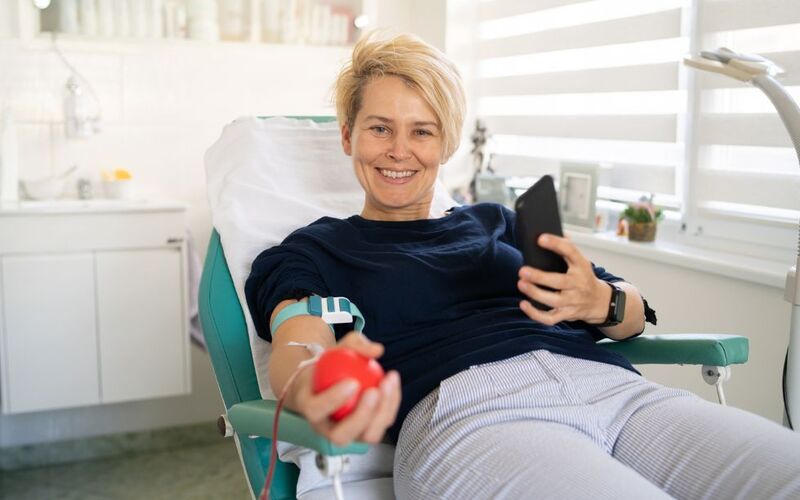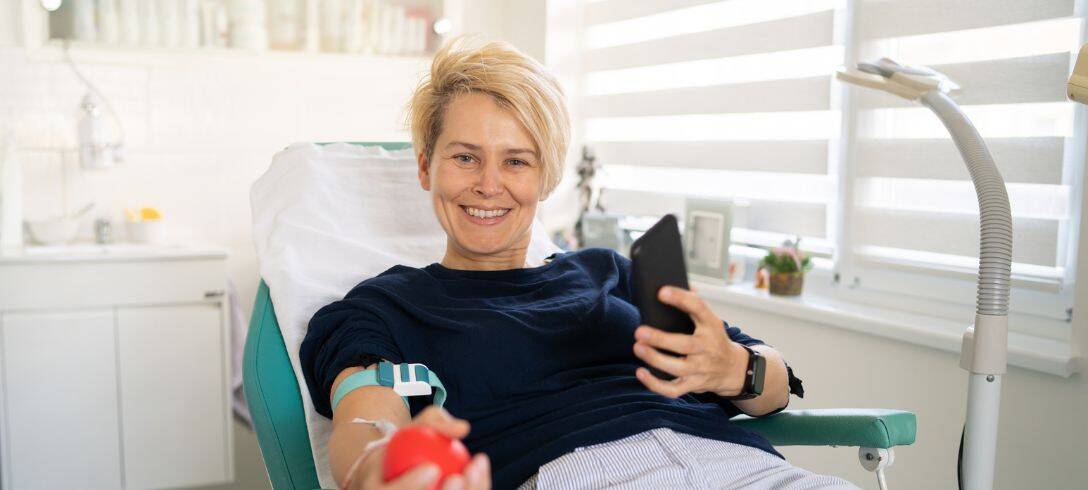Florida Facing Platelet Shortage: How You Can Help Cancer Patients
Florida is experiencing a regional shortage of platelets, a vital blood component that cancer patients rely on every day. At Moffitt Cancer Center, demand for platelet transfusions has risen sharply as the patient population grows, making volunteer community blood donations more important than ever.
What’s the Difference Between Whole Blood and Platelet Donations?
When most people think of donating blood, they picture giving a pint of whole blood. This type of donation remains incredibly valuable and is often used in emergencies, trauma care or surgeries.

Platelets, however, are different. According to the Red Cross, platelets are tiny cells in your blood that help it clot and stop bleeding. They are especially critical for patients undergoing cancer treatments like chemotherapy or bone marrow transplants, which can lower platelet counts and put patients at serious risk of bleeding.
Unlike whole blood, which can be stored for up to 42 days, platelets have a very short shelf life, just five to seven days. This means hospitals need a steady stream of platelet donors to ensure patients always have access to this lifesaving resource.
Why Platelets Matter for Cancer Patients
“Many cancer patients require multiple platelet transfusions during their treatment journey. For them, platelets are essential. A strong platelet supply helps ensure that patients can safely continue their treatments without dangerous complications from bleeding,” said Richard Gammon, MD, a medical director of Transfusion Medicine at Moffitt.
How You Can Make a Difference
Community blood centers across Florida, including LifeSouth and SunCoast, the main suppliers of Moffitt, are working hard to meet the need. But with an increase in seasonal illnesses keeping many people from donating and high patient demand, platelet donations are falling behind.
If you’re healthy and eligible, consider donating platelets. While the process takes a bit longer than a standard blood donation, about two to three hours, you’ll know you’re directly helping cancer patients who depend on these transfusions for their survival and recovery. “I am a longtime platelet donor. You can help up to three patients from one donation. Please consider becoming one too,” Gammon said.
To schedule an appointment, visit:
- LifeSouth: www.lifesouth.org
- SunCoast Blood Centers: suncoastblood.org




